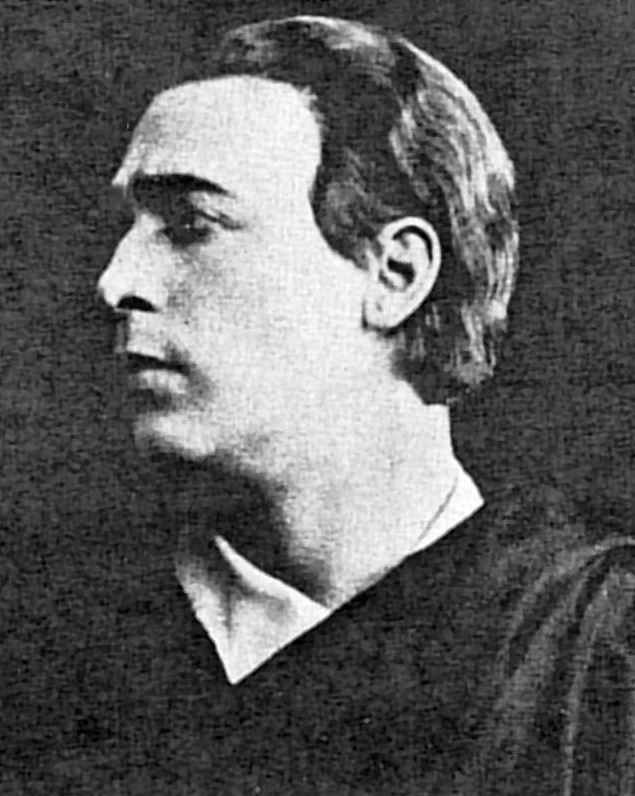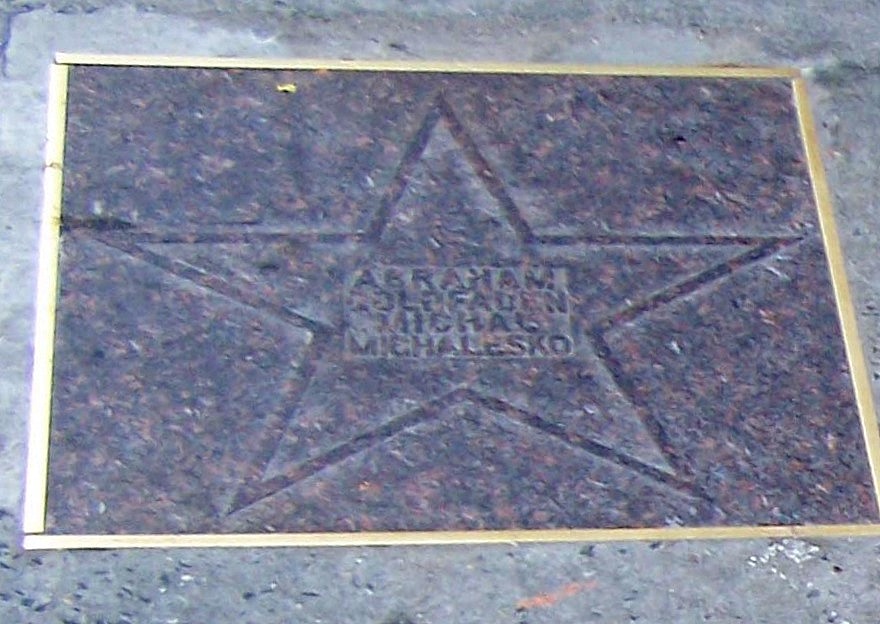|
|
|
http://imdb.com/name/nm0584632/
1888(or85?)-57
MICHALESKO, MICHAL, Yid. actor; b. Russia,
1885 ( ? ) ; d. N. Y. C, April 28,
1957; in U. S. since 1921; played in Jewish
theatres in Europe, So. Am., and U. S.;
estab. Yid. stage group in Los Angeles,
1952; appeared in many Yid. operettas.
Мichal Michalesko was
born on November 26, 1888 in Kovalevka, Chersoner Guberne, a Ukrainian community
in Russia. At the early age of twelve he was already playing a leading role of
Joseph in the play “Joseph and his Brethren” with local actors. Shortly
afterward he played in “Romeo and Juliet” with great success. Word of his
outstanding acting ability soon came to the ears of the famous theatrical
producer Zitomirski who had acting troupes throughout Europe. Mr. Zitomirski
came to see him while he was starring in still another play called “Bar Kohba”.
Upon seeing his unusual talent, the producer immediately put him under contract
with a deposit of 35 rubles a month. He soon began to tour large Russian cities
and earned reputation as a first class dramatic performer.
In 1912 he played the title role of “Gedaliah” in the play “Churban Yerushalaim”
at the famous Kaminsky theatre in Poland. After that he played in Thomashefsky’s
production “The Soul of My People”, at which time he held the attention of
Warsaw Jewish theatre public. Shortly after, he was engaged to play at
Zandberg’s Grossen Theatre, where he appeared in numerous Yiddish and European
operettas. In 1916 he visited the Warsaw Kaminsky theatre and staged
Waxman-Adler’s “The Beautiful Bertha”. It was not long he began to produce light
operas on a scale as elaborate as the most outstanding shows in Europe. The idea
to standing famous European operas in Yiddish gave him wide appeal and they were
always extremely successful. When the word of his outstanding success and
ability became known outside Jewish circles, he began to receive requests to
appear on the Polish stage. Michalesko declined these offers and continued with
his outstanding work in the Jewish theatre.
In 1920 Michal Michalesko came to America on the request of the late Boris
Thomashefsky. He made his first appearance in this country at Thomashefsky’s
National theatre in the operetta “The Hungarian Girl”.
During lifetime he played in the largest theatres in the United States, England,
France and South America. His most memorable performances were as Esau, the
rebellious son, in “The Wanderer” and Hershele Dubrovner in “Gott, Mensh ut
Tyvel”. He staged many plays in America among which Rumshinsky’s famous operetta
“The Song of Israel”. In 1952 Michalesko established a Yiddish theatre group at
the Willshire-Evell theatre in Los Angeles. While on tour in Chicago with Molly
Picon Company in the play “Farblondjete Honeymoon” he suffered a fatal heart
attack and died a few hours later, on April 28, 1957, at the age of 69.
|
Манхэттен |
Аллея Звёзд Еврейского Театра The Yiddish Walk of Fame Звездa "Гольдфаден - Михалеско" |
| Ист-Виллидж |
|
| Second Avenue | |
| @ Tenth Street | |
|
Аллея Звёзд Еврейского Театра была создана в 1984г. по инициативе Эйбa Либиволa. Она состоит из 28 квадратных гранитных плит со звёздами, в каждую из которых вписано одно или два имени. |

